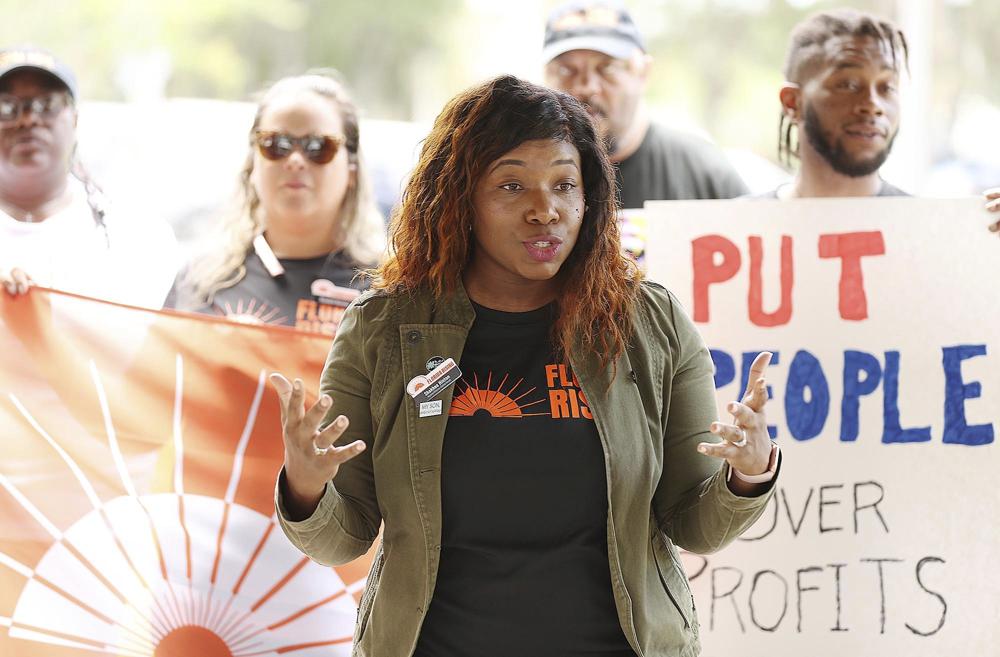$99 million in rental assistance for Floridians returned
Nonprofits that have been trying to help residents in affordable housing tap into rental assistance said the problem is that some landlords won’t participate in rent relief programs
About $99 million in unspent rental assistance meant to help Floridians living in affordable housing was returned to the state after the agency overseeing the program struggled to disburse the money.
The Florida Housing Finance Corporation, which was established by the Florida Legislature to help develop and support affordable housing, received $120 million in federal funding for rental assistance last year as part of the CARES Act. Florida used the money to set up a Coronavirus Relief Fund, intended to help tenants catch up on rent who live at the properties that FHFC finances and lost jobs or income due to the pandemic.
Taylore Maxey, press secretary for the nonprofit, said it handed out about $13.2 million to help tenants at 373 multifamily developments across the state. In total, FHFC said it received 786 applications for assistance but only 521 were approved. And about $99 million was returned to the Department of Economic Opportunity to be repurposed for other pandemic-response programs.
“There’s no way to sugarcoat it: That strategy was underutilized,” said Trey Price, the FHFC’s executive director. “But all this considered, I think we did a good job with the time constraints we were under and the resources we were given.”
Nonprofits that have been trying to help residents in affordable housing tap into rental assistance and fend off eviction notices, including the Miami Workers Center and Community Justice Project, said the problem is that some landlords won’t participate in rent relief programs because of the requirements they place on property owners.
To take part in the FHFC program, for example, landlords had to waive late fees and agree not to raise rent through January 2021, while also pledging not to refuse lease renewals for tenants who fell behind on rent or report them to credit agencies. They also had to agree not to initiate any new eviction filings and suspend any pending evictions for a period of time.
However, Price said he believed the biggest barrier to disbursing the funds was that tenants had to pay 30% of their household income on rent to be eligible, a prerequisite that was later removed.
He said a separate program that the nonprofit ran, in which FHFC contracted with 119 local government housing offices to distribute rental assistance, was much more successful. According to numbers provided by the nonprofit, $98.3 million in rental assistance and $18.1 million in mortgage relief was spent through that strategy.

Price said FHFC returned the unspent money ahead of a deadline set out in the CARES Act, which mandated all of the funding be used by Dec. 31, 2020 or be returned to the federal government. Former President Donald Trump eventually extended that to the end of 2021 when he unexpectedly signed the Consolidated Appropriations Act in December.
He waited to sign the $900 billion COVID relief package until Dec. 27, just days before many of the provisions in the CARES Act were set to expire, including federal unemployment and the Paycheck Protection Program. The country’s eviction moratorium was also about to end.
Price said the uncertainty as to whether or not Trump would sign an extension put the Florida Housing Finance Corporation in a difficult spot.
“There was a real question if then-President Trump was going to sign or veto that bill,” Price said. “By that point, we had to start moving (the unspent money) back to the state of Florida. You don’t just snap your fingers and move $99 million. There was quite a bit of a time crunch.”
Christina Pushaw, spokeswoman for Gov. Ron DeSantis, said the decision was made to “pull back” the unused money because that bill awaiting Trump’s signature contained $25 billion in dedicated rental assistance, including $1.4 billion for Florida. Pushaw said the money returned by the Florida Housing Finance Corporation was repurposed “to support ongoing pandemic response expenses of the state,” but couldn’t say exactly what it was used for.
But it’s unclear why the governor’s office was confident it would receive that money, given Trump’s reluctance to sign the Consolidated Appropriations Act, which passed in both the House and Senate with bipartisan support. Pushaw did not immediately respond when asked for additional details.
In a video posted to Twitter, Trump at the time called the bill a “disgrace” and called on lawmakers to “get rid of the wasteful and unnecessary items from this legislation and to send me a suitable bill,” referring to provisions in the 5,593-page legislation allocating money to foreign aid, environmental projects and the arts and humanities.
“It’s called the COVID relief bill, but it has almost nothing to do with COVID,” Trump said, stunning lawmakers, and even some of his own aides, who had been in tense negotiations over the package for months. Trump also was unhappy that the bill included only $600 stimulus payments for Americans and said he wanted to issue $2,000 checks.
Folks on Capitol Hill were quick to point out, however, that some of the unrelated projects that received funding were programs Trump included in his fiscal 2021 budget. His criticism also ignored that Steven Mnuchin, Trump’s Treasury secretary, was the one who negotiated the $600 figure.
Have you subscribed to theGrio’s podcast “Dear Culture”? Download our newest episodes now!
TheGrio is now on Apple TV, Amazon Fire, and Roku. Download theGrio today!
The post $99 million in rental assistance for Floridians returned appeared first on TheGrio.
from TheGrio https://ift.tt/2Uo5zyh
No comments: